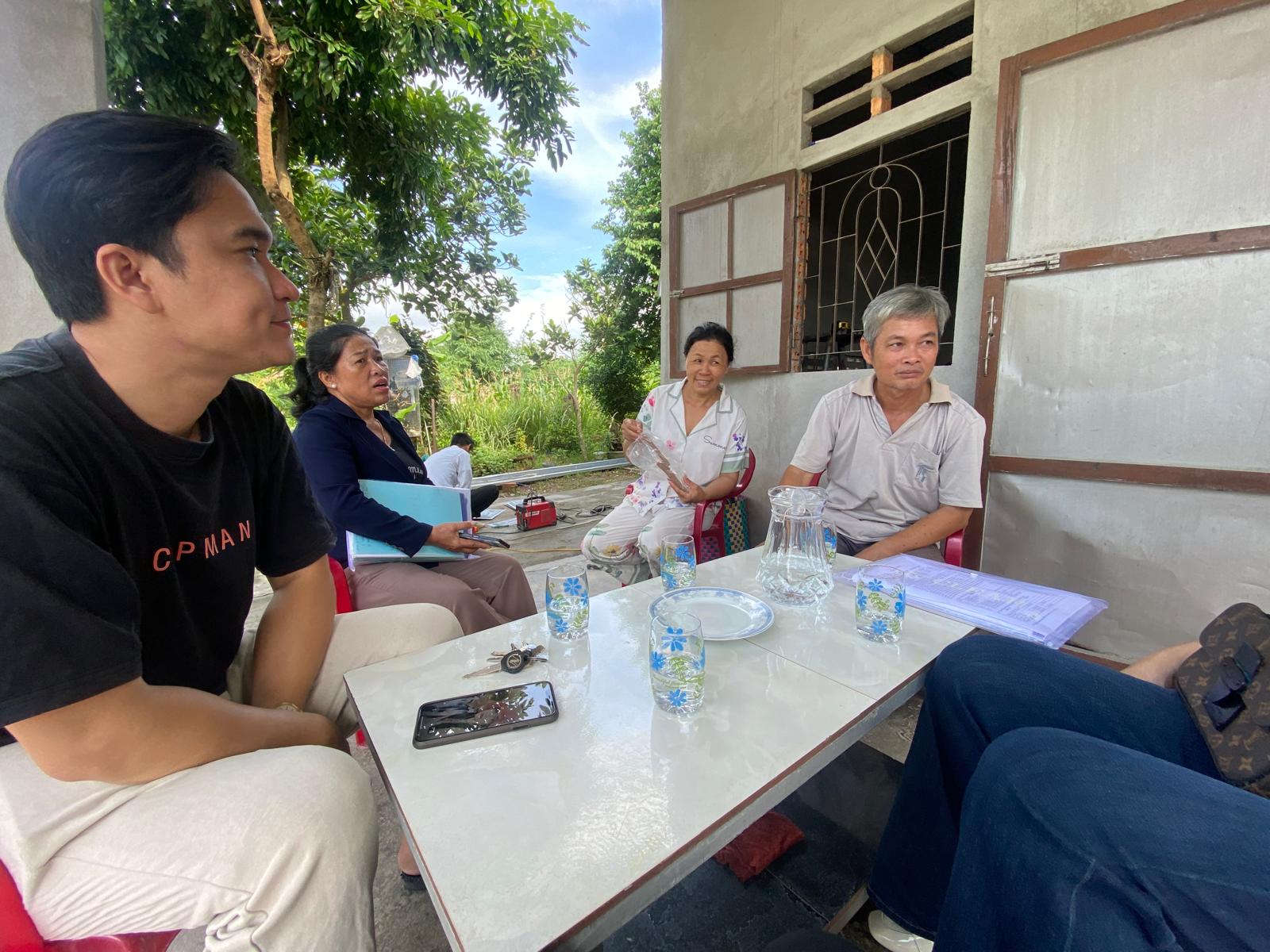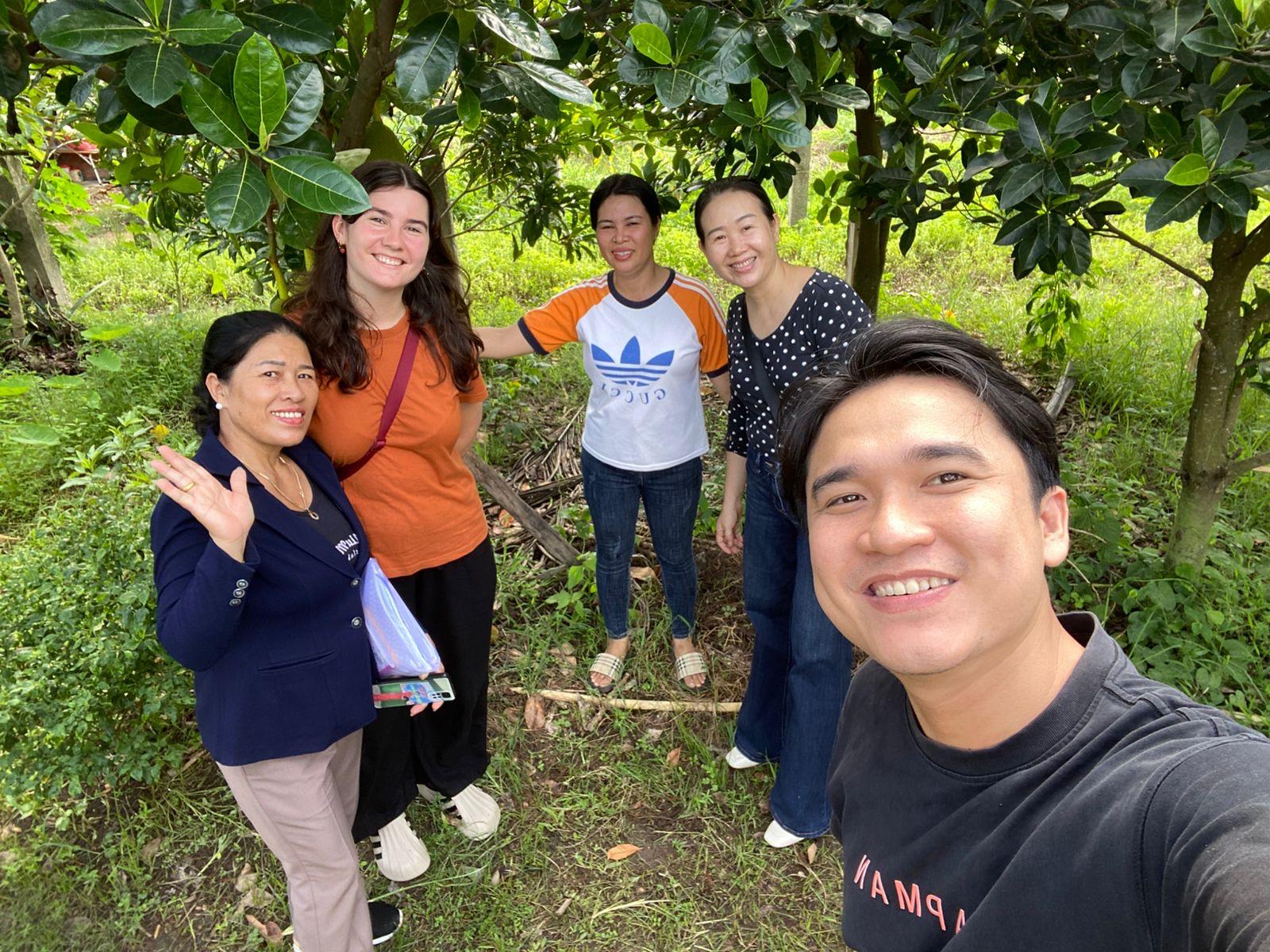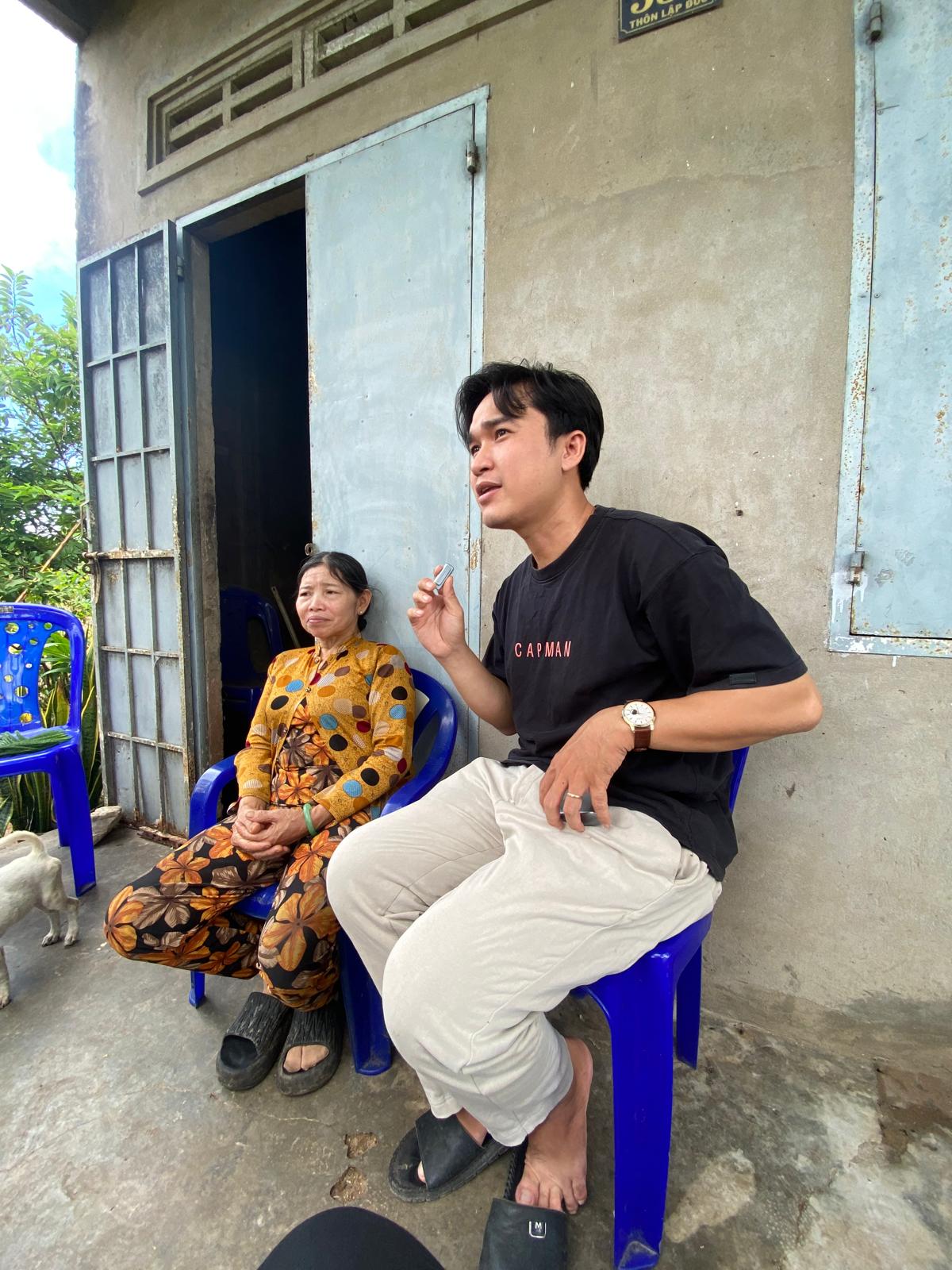Today was my second day at the Thien Chi Center, and once again we went to visit several families supported by the NGO. Each story was very different, but all of them showed how microcredits can change lives.

First family
This family received a loan of $400 to expand their dragon fruit production. Normally, microcredits are for 10 years, but in their case, it lasted 16 years. Today we came to officially close the loan.
The children have now graduated from university, found jobs in Ho Chi Minh City, and the family’s economic situation has improved. The children were able to benefit from student loans provided by the government, which helped them study.
The father built their house little by little, with his own hands, over the years. For the next two years, the NGO will still do follow-ups to make sure the family is stable.
The father told us he is very grateful to Thien Chi. He said that the loan itself wasn’t such a huge amount of money, but the real value was the motivation and support he felt from the NGO. He felt that he was not alone.
Families with this type of loan are usually visited once a month or once every three months, with more in-depth monitoring twice a year.
Second family

The second family we visited was very different. The father works in construction, but not nearby, so he only comes home on weekends. The mother works with dragon fruit and other fruits that she sells online.
They received a $400 loan to support this business, especially since fertilizer for dragon fruit trees is very expensive. Thanks to this, their monthly income increased from 7.7 million VND to 9 million VND.
Their daughter also receives a school scholarship. She studies hard, has good results, and hopes to enter university in the future.
Third family

The third family received a $200 loan to work as a fruit and vegetable seller in the town market.
Her first son had a serious motorbike accident that injured his spine, so he cannot lift heavy things. He helps by dropping his mother off at the market and then goes into the forest to collect ants and ant eggs, which he sells to bird owners.
The second son spent a few years in prison after a motorbike accident. Before that, he had a small dragon fruit field, but while he was away the mother couldn’t maintain it because she broke her arm. Now, he works daily jobs whenever someone calls him.
The mother broke her arm six years ago and had surgery, but she couldn’t afford the follow-up operation to remove the screws because she has no health insurance.
At the market, she usually earns only $2–3 per day. Inflation makes it even harder, since people prefer to grow their own fruit and vegetables in their gardens instead of buying them.
Today I learned that dragon fruit prices are very unstable because they depend mainly on the Chinese market. Since China buys in huge quantities, they control the prices, which is terrible for farmers, sometimes they earn almost no profit.
What I found most interesting is that the follow-up continues for several years even after the end of the microcredits. This really helps evaluate whether the support had a long-term impact and whether the families can continue independently.
I find it very meaningful that families are encouraged to share their feedback. They don’t just see microcredits as a financial transaction, they really feel supported. The sense of being accompanied, not abandoned, seems to matter as much as the money itself.
Leticia